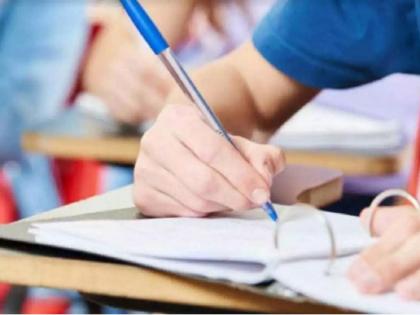Leaks, Cheating, and Cries for Justice: Unraveling the Talathi Exam Scandal
By sahir shaikh | Updated: January 10, 2024 18:00 IST2024-01-10T17:58:07+5:302024-01-10T18:00:20+5:30
More than 10.41 lakh candidates applied for the Talathi pre-recruitment exam, of which 8.65 lakh appeared for the test ...

Leaks, Cheating, and Cries for Justice: Unraveling the Talathi Exam Scandal
More than 10.41 lakh candidates applied for the Talathi pre-recruitment exam, of which 8.65 lakh appeared for the test held between August 17 and September 14, 2023, for 4,644 vacant posts. The exam, conducted across 57 shifts in various centers including Nasik, Chhatrapati Sambhaji Nagar, Wardha, Sangli, and Amravati, was marred by allegations of paper leaks and cheating.
Paper leaks cast shadow on exam:
Controversy erupted on the first day of the exam in Nashik when Ganesh Gunsinghe, a suspect in previous paper leaks for the Pimpri-Chinchwad police recruitment in 2021 and the MAHA-DA exam in 2022, was allegedly involved in leaking the Talathi question paper. An FIR was registered against Gunsinghe and his accomplices under various sections of the IPC and the Maharashtra Prevention of Malpractices Act. Police recovered 186 photos of the question paper, a spy camera, micro Bluetooth devices, and other high-tech equipment from the accused. Further incidents of malpractice surfaced during the exam.
A candidate was arrested with hi-tech equipment at an Amravati exam center, while another was apprehended with similar equipment before the exam even began at a Sangli-Miraj Road center.On August 22, Aditya Bhalchandra Burade was caught cheating in Shrigondha (Ahmednagar) using notes on the Indian Constitution during the exam. An FIR was registered against him.In another shocking revelation, an invigilator at an exam center was found providing answers to candidates through rough sheets, with the help of a cleaning lady and other staff. The answers were delivered on rough sheets during the exam itself, with exam questions sent from an external location. Police accidentally discovered the malpractice while investigating a car theft suspect and found cheating material and question papers on the suspect's mobile phone on September 5. An FIR was registered against the invigilator, Raju Bhimrao Nangre, his accomplice Vijay Patil, a candidate, and two others. Nangre was arrested.
Toppers' link to TCS employee raises eyebrows:
After exam results were declared, the Competitive Examination Coordinating Committee (CECC) leveled serious allegations against a TCS-ION employee, claiming he helped his relative cheat and top the exam. Rishikumar Damodar Lokhande and Tejshree Shivaji Navale from Thane district secured the top two ranks with 208 and 198 marks, respectively. The CECC alleged that Tejshree, who used her maiden name during the exam, is married to Amol Vidhate, whose brother-in-law is Rishikumar Lokhande. Amol Vidhate works for TCS. The CECC accused Vidhate and TCS of assisting both candidates in the exam.
CECC demands SIT probe, re-examination:
The CECC has brought to light the widespread malpractices in the Talathi exam and demanded a thorough investigation by a Special Investigation Team (SIT). They suspect more cheating and irregularities in the conduct of the exam and have requested a re-examination through the Maharashtra Public Service Commission (MPSC). A written request highlighting the malpractices has been sent to the Deputy Chief Minister, Chief Minister, and other concerned authorities. The CECC has also accused TCS-ION employees of providing chits to candidates during the exam. Mahesh Gharbude, the working president of the CECC, questioned the government's reliance on private players for conducting exams when experienced agencies like MPSC exist. He emphasized the need for an SIT investigation, stating, "The home minister should take immediate cognizance of the issue and order a detailed probe. It is observed that the TCS employees were helping their relatives who appeared for the exam and were declared toppers in the merit list."Gharbude further raised concerns about the normalization process, questioning how candidates scored 210 marks out of a maximum 200.
Open in app